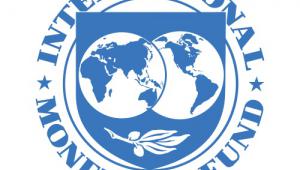In a report published today, the IMF found that global financial conditions can affect countries’ ability to control the ease of access to financing in their domestic markets by a factor of between 20-40%. Some of the most vulnerable economies – emerging markets – can be influenced by a factor of 60%.
The fund said there wasn’t evidence to suggest that the pressure global financial conditions exert on those at a domestic level has increased in the past two decades, as economies have become more integrated with international markets.
However, it added: “The rapid speed at which foreign shocks affect domestic financial conditions may make it difficult [for policymakers] to react in a timely and effective manner.”
This means that domestic monetary policy’s efficacy in sustaining a national economy, via easing or tightening access to credit for households and firms, could be reduced. Or, policymakers might have to act quickly and forcibly to offset an unwelcome global shock, with potentially undesirable side effects.
Nevertheless, the IMF pointed out that monetary policy and other domestic factors still hold good sway over the financing conditions in a country, with some types of economy affected more than others.
“In line with intuition,” the IMF said, “the results indicate that fluctuations in global financial conditions are associated with a greater share [of domestic change] in countries that are relatively more financially integrated with the rest of the world.”
Emerging markets were the most affected, it continued, suggesting these countries should prepare for the implications of changing financial conditions.
Governments should also work to develop resilience to global financial shocks by, for instance, developing a local investor base.
A separate chapter of the IMF’s report examined the potential impact if the current climate of low interest rates and low growth prevailed in the long run.
While the fund did not expect such a situation, it added that the experience of a country like Japan, which has had ultra-low interest rates for decades, suggests a permanent exit from such an environment “cannot be guaranteed”.
The fund warned that a prolonged episode of low interest rates would raise challenges in terms of profit for banks, pension funds and life insurers, with consequences for financial stability and the existence of defined-benefit pension plans.














